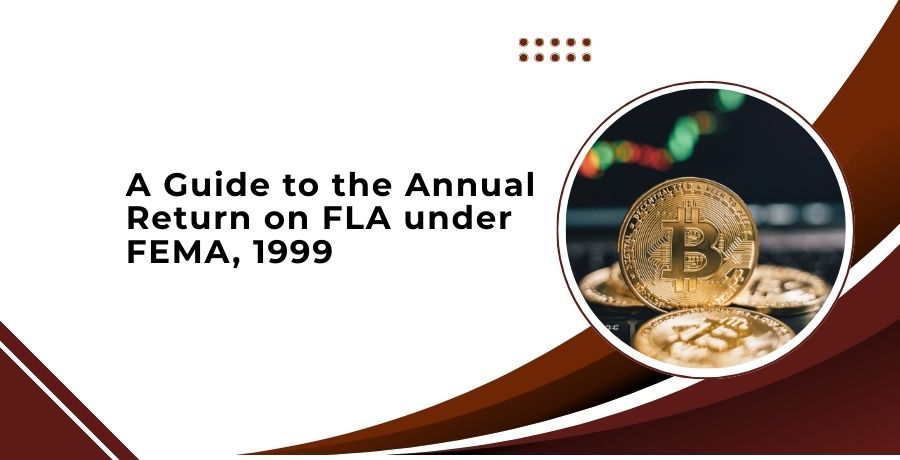
The Annual Return on Foreign Liabilities and Assets (FLA) is a compulsory report communicated by the Reserve Bank of India under the Foreign Exchange Management Act (FEMA), 1999. It is an important compliance activity for India resident enterprises that have foreign financial assets or liabilities.
The information collected via the FLA return is aggregated, confidential data that is utilized by the RBI for macroeconomic purposes, including the calculation of India's Balance of payments (BoP), International Investment Position (IIP) and for the purpose of the International Monetary Fund's (IMF) surveys.
Every Indian resident entity, which has received Foreign Direct Investment (FDI), or has made Overseas Direct Investment (ODI), during any previous year, including the current reporting year, is required to submit an annual FLA return.
If your entity holds any foreign assets or liabilities on its balance sheet as of the financial year-end (March 31st), you are required to file. This includes the following entity types:
● A Company registered under the Companies Act, 2013.
● A Limited Liability Partnership (LLP) registered under the LLP Act, 2008.
● Other Entities, including SEBI-registered Alternative Investment Funds (AIFs), Partnership Firms, and Public-Private Partnerships (PPPs).
Key Clarification on Filing Obligation:
In the latest financial year, your entity might not have received any new FDI or made any new ODI but if it has still got outstanding foreign assets or liabilities on its books as at 31 March, you will still have to submit the FLA return.
You are exempt from submitting an FLA return where your entity is in any of the following situations as at end of the reporting year (March 31st):
● Has no outstanding foreign direct investment both inward and outward.
● Only received share application money and has no other outstanding FDI or ODI.
● By the end of the year all non-resident shareholders transferred their shares to resident entities, so there is no outstanding FDI.
● Has only issued shares to non-residents on a non-repatriable basis and this is not foreign investment from the FLA perspective.
Primary Deadline: July 15th
The FLA return must be submitted once a year and is due on July 15.
As of today, we are at August 2, 2025, and the deadline for filing the FLA return for the financial year ending March 31, 2025, has passed.
The Un-audited Data requirement
It is mandatory for you to file the FLA return by 15th July, in accordance with the RBI requirement, even if your company's financial accounts have not been audited.
● You will have to file the return using provisional or unaudited data to meet the deadline.
● If you do not file the return by 15th July, the RBI assumes you have violated FEMA, we normally recommend not to wait for audited accounts.
Revised Return with Audited Numbers
After the audit of your accounts is complete, you must submit a revised FLA return.
● You first have to raise a request for revision via the FLAIR portal.
● After you get approval from the RBI, you can submit the revised form with the audited numbers.
The FLA return must be submitted through the RBI's online web portal: the Foreign Liabilities and Assets Information Reporting (FLAIR) system. The old Excel-based filing system is no longer in use (except for AIFs).
● Portal Address: https://flair.rbi.org.in/fla/faces/pages/login.xhtml
● First-Time Users: You must complete a one-time registration by filling out the user registration form and uploading a Verification Letter and an Authority Letter. A user ID and password will then be sent to the authorized person's email.
● Acknowledgement: A system-generated acknowledgement is created upon final submission. No separate email will be sent.
Special Process for Alternative Investment Funds (AIFs)
AIFs must first register on the FLAIR portal. After registration, they must email the RBI FLA team to request the latest Excel-based format for AIFs. The completed form is then submitted via email, and an email-based acknowledgement will be provided.
Late Filing or Revising a Previous Year's Return
It is possible to file a return after the due date or modify a previously filed return. However, this requires prior approval from the RBI, which can be requested through the FLAIR portal. Be aware that late submissions may invoke penalty clauses for FEMA violation.
The FLA return captures your entity's foreign financial assets and liabilities. Domestic assets and liabilities, even if denominated in foreign currency, should not be reported.
Valuation of Foreign Equity Investment is crucial:
●
For Listed Companies:
The market value of non-resident equity holding is calculated using the company's closing share price on the stock exchange as of the end of March for the reporting year.
●
For Unlisted Companies:
The market value is calculated using the Own Funds at Book Value (OFBV) method. The formula is:
Market Value of Equity=(Net Worth of the Company)×(% of Non-resident Equity Holding)
Where,
$$\text{Net Worth} = (\text{Paid-up Equity & Participating Preference Share Capital}) + (\text{Reserves & Surplus}) - (\text{Accumulated Losses})$$
Important Note: You are not required to submit any financial statements (e.g., Balance Sheet, P&L Account) with the FLA return.
Failure to submit the FLA return by the due date (July 15th) is treated as a violation of FEMA, 1999. This can lead to the invocation of penalty clauses as per RBI notifications (e.g., Notification No. FEMA. 395/2019-RB and A.P. (DIR Series) Circular No.16 dated September 30, 2022). Entities that have missed the filing deadline should take immediate steps to seek approval for late submission to regularize their compliance status.